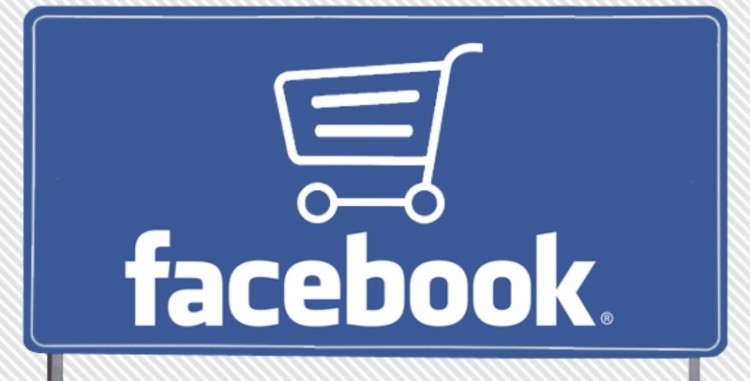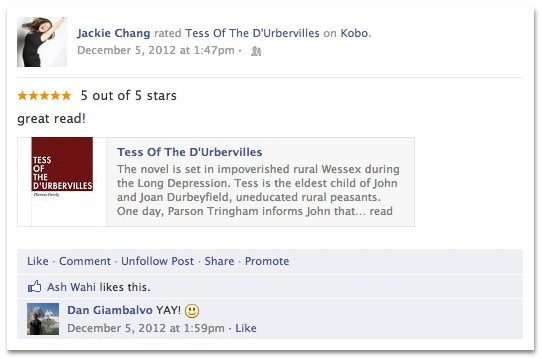 Today Facebook’s graph is getting richer and more precise with new verbs like running, biking, rating, and more. Its database of you, your friends, and the entire world is going grow as a result as will the degree of intelligence built into the social network, and yes, so will Facebook’s monetization options.
Today Facebook’s graph is getting richer and more precise with new verbs like running, biking, rating, and more. Its database of you, your friends, and the entire world is going grow as a result as will the degree of intelligence built into the social network, and yes, so will Facebook’s monetization options.
The new verbs include three new fitness actions (run, walk, bike), four new book-related actions (read, rate, quote, want to read), and two new video actions (rate, want to watch) to open graph.
What can you do with Actions?
The new actions help you share what you’re doing in a very precise way and enable apps to share updates for your automatically. (In fact, you may have heard of this first when Facebook announced “frictionless sharing.”)
Connected apps — like a Kobo reader, for instance — use Facebook actions to update Facebook on, not surprisingly, your actions. In the same way, Nike+ can tell your Facebook friends that you’re running, or that you’ve just finished a 10K slog.
That’s cool, but why does Facebook care? And what makes this important?
What can Facebook do with Actions?
 For many, perhaps most, status updates, Facebook doesn’t really have a clue what you’re actually doing. You said something like “Visiting my mother-in-law for the first time – wish me luck,” and Facebook can’t really parse through those words to understand it like a human would.
For many, perhaps most, status updates, Facebook doesn’t really have a clue what you’re actually doing. You said something like “Visiting my mother-in-law for the first time – wish me luck,” and Facebook can’t really parse through those words to understand it like a human would.
But when you use Facebook actions, Facebook knows what your status update actually means.
That’s because Facebook actions are structured updates that not only provide information on what you’re doing or have done, like any standard status update would, but also provide meta-data about what precisely it is. In other words, since computers are stupid, they have to be first told the message, and second told what it means.
Facebook has called Actions the “building blocks of Open Graph,” and Open Graph is nothing less than an attempt to actually understand you at a deep level … and your friends, and your interactions.
There’s money in them hills
Google monetizes incredibly well because its massively popular search engine has built-in intent: When you’re searching for something, you include keywords about what you want, and Google can determine with fairly high accuracy what your meaning and intent is, and then match it to commercially relevant information.
Aka, ads.
Facebook monetizes poorly because there’s seldom built-in commercial intent in social status updates, and because it’s less clear what they’re actually about.
As VentureBeat’s Jolie O’Dell wrote last year:
Actions are kind of the holy grail of semantic data, defining relation types between people, objects, content, places, businesses, and so much more. If users warm to the idea of Actions, it might also be one of the most valuable and lucrative move Facebook will ever make.
Naturally, Facebook’s messaging around Actions is all consumer-focused: They’ll allow people to “capture memories” and “share experiences” and “express” themselves. And they will.
But they’ll also make Facebook a great deal smarter.
VentureBeat's mission is to be a digital town square for technical decision-makers to gain knowledge about transformative enterprise technology and transact. Learn More


